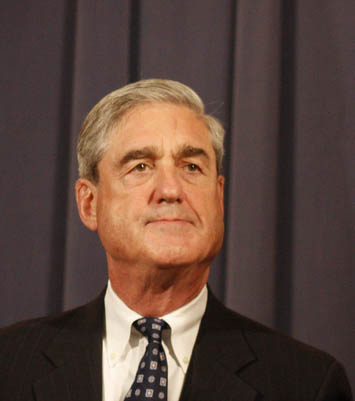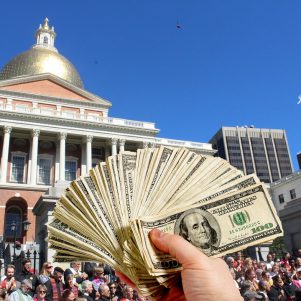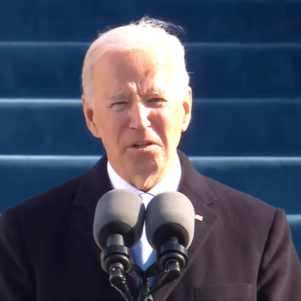Mueller’s Mediocrity Makes Him Into A Star By Washington Standards
By Ira Stoll | June 8, 2017, 17:59 EDT
 Robert Mueller
Photo by Ryan J. Reilly via Flickr
Robert Mueller
Photo by Ryan J. Reilly via Flickr A sad truth about modern Washington is that bipartisan consensus is not only rare, it’s dangerous.
In other words, when Republicans and Democrats agree on something, sometimes it means they both are wrong.
So it is with the acclaim being heaped upon the special counsel named to investigate Russia’s supposed interference in the 2016 election, Robert Mueller.
“Former Director Mueller is exactly the right kind of individual to serve as special counsel in the Russia investigation,” the Democratic leader in the Senate, Charles Schumer, said.
A Republican senator from Florida, Marco Rubio, said in a statement, “Mr. Mueller is widely respected for his independence and professionalism.”
Another Republican, Senator Ben Sasse of Nebraska, said of Mr. Mueller, “His record, character, and trustworthiness have been lauded for decades by Republicans and Democrats alike.”
Even in a more-skeptical-than-most Wall Street Journal column headlined “The Mueller Caveat,” Kimberley Strassel averred that “the new guy is as skilled and upright as they come. A Robert Mueller word-association game would go something like this: integrity, honor, respect, order, discipline, honesty, fairness.”
I’m not questioning Mueller’s integrity or honesty. But it surely says something about the low standards for public servants these days that someone with a record as scandal-scarred and mediocre as Mueller can be straight-facedly touted as an exemplary specimen.
Mueller came up through the U.S. attorney’s office in Boston at a time when the Boston FBI had what was eventually found to be a criminal relationship with an organized crime figure, James “Whitey” Bulger.
Mueller eventually rose to serve as assistant attorney general for the criminal division of the Justice Department from 1990 to 1993. This was the period during which the U.S. attorney in New York, Rudolph Giuliani, was engaging in prosecutorial overreach against Michael Milken. Mueller was nominally Giuliani’s supervisor, but he doesn’t seem to have done anything to have prevented abuses of the sort that were documented in Daniel Fishel’s book Payback: The Conspiracy To Destroy Michael Milken and His Financial Revolution.
Mueller handled the BCCI investigation in a way that brought him into conflict with New York Times columnist William Safire, Wall Street Journal editor Robert Bartley, and the district attorney of New York County at the time, Robert Morgenthau.
When Mueller was up for the top FBI job back in 2001, Jack Shafer noted that “Mueller remains controversial in California for his role in helping former Attorney General Richard Thornburgh craft a Justice Department policy that allows federal prosecutors to talk to unrepresented defendants.”
A 2002 piece in National Review by Matt Continetti was headlined, “Mueller’s Misstep: The FBI Director Befriends Apologists for Terror.”
Mueller’s FBI botched the Boston Marathon bombing — the figures in it were on the bureau’s radar screen, but the agency failed to take them seriously enough to prevent the attack.
During Mueller’s tenure as FBI director, the agency’s notoriously sloppy and error-prone forensic laboratory had enough trouble that even in Mueller’s final months, the lab was reportedly losing critical evidence, like a hair sample in an arson case involving New Jersey police. Mueller’s FBI also engaged in a petty turf war to try to prevent Ray Kelly’s New York Police Department from fulfilling counterterrorism responsibilities.
A prominent New York FBI supervisory agent was reportedly under investigation for illegally leaking grand jury information to the press in an insider trading case.
The government is a large organization, and no one is perfect. In some of these cases the connection to Mueller may be distant, or his own behavior may be faultless.
Even so, though, in the private sector or even the military, any single one of these issues — let alone the whole collection of them — might torpedo someone’s chances for a promotion or high-profile appointment. Yet somehow these matters have barely even been mentioned in much of the press coverage or political reaction to Mueller’s choice as special counsel.
Why all the praise for Mueller? Maybe the politicians and journalists have short memories. Maybe they have an interest in building him up because they stand to gain when he attacks Trump.
The one person who might not gain by puffing up Mueller as some sort of superhuman character is President Donald Trump. He risks having his presidency fall victim to the criminalization of political differences in the pattern of the Iran-Contra and Whitewater/Monica Lewinsky excursions. In one scenario, Mueller winds up, functionally, doing the political preparatory work for James Comey’s 2020 presidential campaign, which could be funded by an independent-minded anti-Trump billionaire like Michael Bloomberg.
Mueller’s own reputation will likely come out gleaming, at least among senators and journalists. Whether the whole thing is good for the country is a different question. Personally, I have my doubts.
Ira Stoll is editor of FutureOfCapitalism.com and author of JFK, Conservative.











